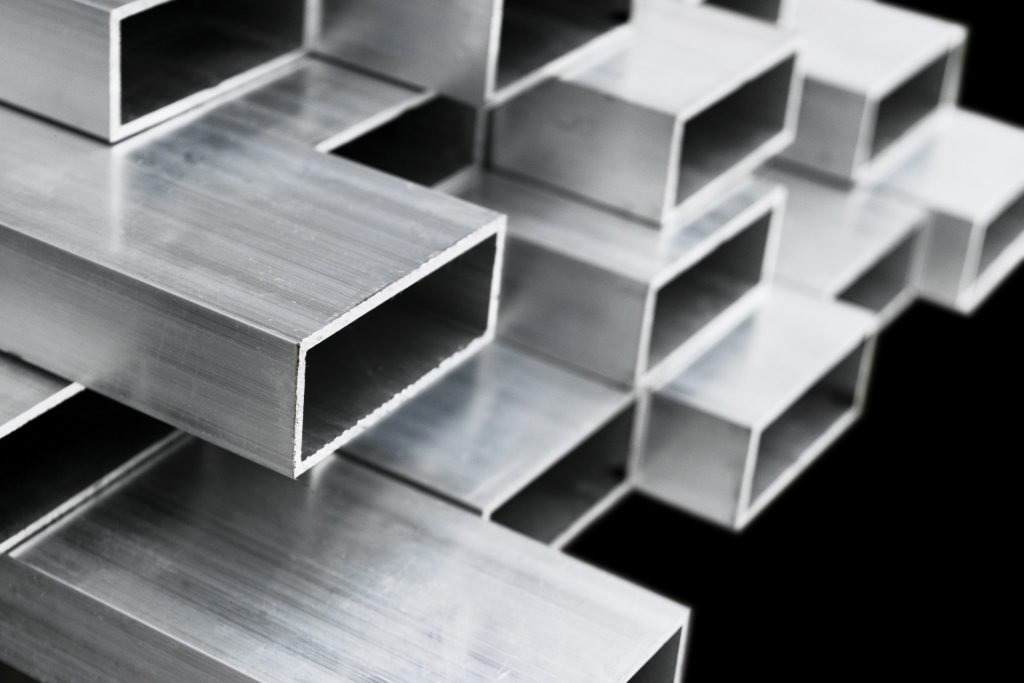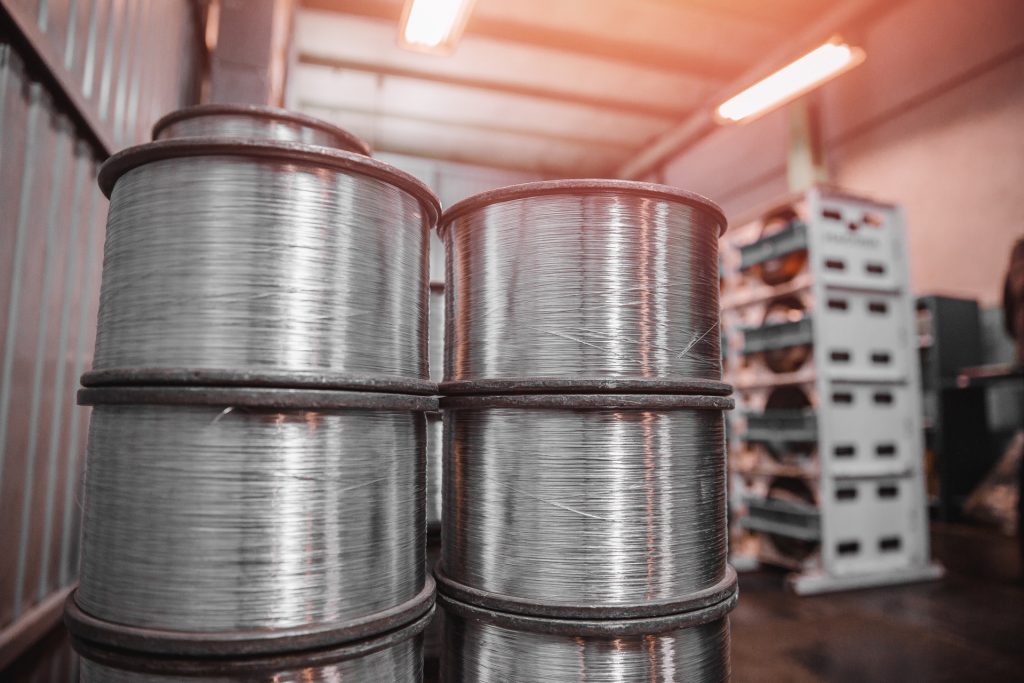Aluminum, the silvery-white malleable metal, is the third most abundant element (after oxygen and silicon) in the Earth’s crust. In fact, it makes up approximately 8% of it. Over the centuries, people have discovered many uses for aluminum, making it a metal in high demand. Aluminum’s various advantageous and unique properties, including its lightweight, high resistance to corrosion, malleability, and ductility, make it a unique material. Furthermore, it’s recyclable, and the process of converting scraped aluminum to new aluminum consumes a minimal amount of energy.
It’s no surprise that the demand for aluminum has shown a sharp increase over the years. While many uses of aluminum are known, it’s versatility as a metal makes it a good choice for some unexpected uses. For instance, many people aren’t aware aluminum is an integral component in the production of glass. Below we focus on the most common uses of aluminum.
What Are the Most Common Uses of Aluminum?
Aluminum is used for a variety of purposes in a plethora of sectors. Its usage is often organized under four different categories: construction, consumer goods, electrical, and transportation. Let’s discuss the important role aluminum plays in each of these four areas.
Aluminum and Its Growing Demand in the Construction Sector
While wood, cement, limestone, granite, and sandstone were popular historical choices for construction purposes, aluminum has become a more favorable choice. This is primarily because aluminum structures are corrosion-resistant and nearly maintenance-free. In addition, aluminum is highly malleable and ductile—it’s very easy to shape it however you desire. It’s also light in weight, which makes it that much simpler to work with. Therefore, buildings made from aluminum are often artistic, unique, and break free from old construction designs. More importantly, these buildings are thermally efficient, which leads to low energy consumption and reduced expenses. Because of this, the use of aluminum in high-rise buildings and bridges has increased. The Empire State Building in New York was one of the first famous buildings to use large amounts of aluminum in its construction. Today, many notable buildings, including the Zaha Hadid’s London Aquatics Centre and Commerzbank Tower in Germany, extensively use aluminum in their construction.
However, it must be kept in mind that the aluminum required for construction purposes should be high quality to provide maximum stability and energy efficiency. Millennium Specialty Alloys offers the top quality aluminum for a variety of uses.
Aluminum and Its Growing Demand in the Consumer Goods Industry
Aluminum’s silvery-white colour is one of its biggest assets in the consumer goods market. The use of aluminum gives consumer goods a sleek and polished appearance and adds to a product’s aesthetic appeal. Furthermore, aluminum is light in weight and, thus, considerably reduces the weight of any final product it’s used in. Also, its thermal efficiency protects appliances from the effects of overheating. Aluminum, therefore, has extensive usage in the construction of smartphones, laptops, tablets, and television sets. More recently, several famous and high-end brands, including Apple, and Bang & Olufsen, have shown a high inclination towards using aluminum in their products.
From soda cans to aluminum foil in your kitchen, the metal’s use has been expanding slowly and steadily. While popular in electronic appliances, aluminum is in high demand for numerous sub-sectors of consumer goods. For instance, interior designers love to work with this metal as it gives a space a luxurious and refined look. Thus, furniture, and decor items, made from aluminum have become omnipresent.
Aluminum and Its Growing Demand in the Electrical Industry
The electrical industry also has a widespread demand for aluminum. Several different properties of aluminum make it very useful in this sector. Firstly, aluminum’s low density makes it an ideal choice for long-distance power lines. Secondly, it is ductile, which makes it easier to work with it in comparison to copper. It’s also corrosion-resistant, a vital factor that adds to the life of various electrical products. As such, support structures made from aluminum are lighter, cheaper, and have higher longevity. Within the electrical industry, aluminum is extensively used for the construction of motors, power lines, cables, power systems, satellite dishes, LED bulbs, and so on.
Within the electrical industry, aluminum is often a preferred choice. Millennium Specialty Alloys offers a variety of aluminum perfect for many different uses.
Aluminum and Its Growing Demand in the Transportation Sector
Aluminum has an excellent and unmatchable strength to weight ratio. Because of its lightweight properties, vehicles that include aluminum in their construction require less force to move, which in turn translates into greater fuel efficiency. Plus, because of aluminum’s corrosion-resistance, it doesn’t require expensive anti-corrosion coatings that add to the overall cost of a vehicle.
Within the auto industry, steel continues to be a preferred choice in many parts of the world but opinions are changing. Aluminum use in vehicles leads to reduced CO2 emissions and enhanced fuel efficiency. It’s been said that by 2025 all cars will be made up of approximately 60% aluminum.
Similarly, the use of aluminum in the construction of high-speed trains in the future is also expected to increase significantly. Because the metal helps reduce the weight of trains, it’s therefore more efficient. In fact, the Shinkansen rail system in Japan and Maglev in Shanghai make considerable use of aluminum.
Aluminum also finds extensive usage in the aerospace sector. Often referred to as the winged metal, its various properties make it an ideal choice for designing aircraft. Aluminum is also used extensively in the construction of spacecraft. About 50% to 90% of a spacecraft’s structure is made up of aluminum alloys!


